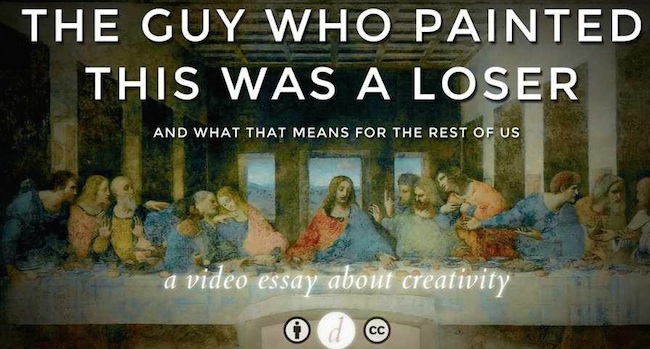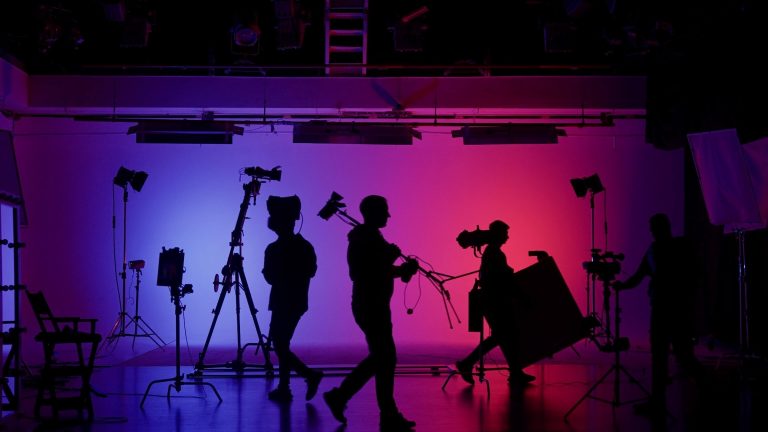Documentary Filmmaking: Thinking Like a Screenwriter

Guest post by Adam Westbrook
I am a journalist and web video maker. Through my new project delve.tv I am trying to push non-fiction and educational content in new directions - by trying to think of documentaries like a screenwriter. I do this through short, visual 'video essays' (a term that frees me up from the conventions of documentary) which I publish as often as I can. I build them using techniques stolen from your world, with the intention of making complex ideas fascinating - and hopefully inspiring too.
A fool's errand? Perhaps, but one with good intention behind it. We live in the gilded Information Age, with the Library of Alexandria at our fingertips, but it doesn't feel like we're getting any smarter. There's all this knowledge out there but it feels trapped away. What if we could make important, but ostensibly dry, topics - history, science, politics - fascinating to a new generation of people? What if we made history documentaries with the suspense of a Hitchcock thriller, or explained philosophy with the emotional resonance of a Pixar classic?
It's not easy but I have found, through trial and error, that the match is a potentially very powerful one.
There are big challenges, the most obvious of which is the ethical issue of applying fiction devices to reality. Where does the truth end and myth begin? Once you accept, as award-winning documentary maker Ken Burns puts it, "all storytelling is manipulation" then you realise that it is in some senses inescapable. The real issues are practical ones. The job of a screenwriter is to take an intellectual idea and then dramatise it. I am also taking an intellectual idea, but I cannot dramatise. I have to seek other ways to make it visible and demonstrable.
So what have I learned by trying to hammer a screenwriter's craft into the world of fact and information?
Theme
Robert McKee calls it the Controlling Idea and Brian McDonald calls it the Armature; whatever you call it, a central idea is essential to any screenplay. It must, as McKee proclaims, say "life is like THIS!" In non-fiction meaning is essential but sadly often overlooked. Journalists focus on explaining facts rather than creating meaning, which is ironic because often that is exactly what people seek: a sense of understanding of our fast moving and complex world.
My first two video essays (embedded below) have proven popular and the reason is obvious: both are emboldened with a clear controlling idea, one that also resonates deeply. This was not an accident. Not every controlling idea can be profound in non-fiction, but I find every story can say something about what it means to be alive today, in this world.
Conflict
Documentary makers already know conflict is essential so this isn't new. Many documentaries seek stories with inherent conflict, whether in war zones or hospitals. But what if, like me, you're trying to explain how binary works? Where is the conflict there? This took me a while to crack but once I realised that the conflict doesn't necessarily have to be within the story itself then suddenly the options opened up.
Screenwriting consultant David Baboulene's definition was essential to me here. "A story" he declares, "is any form of communication which uses Knowledge Gaps in the telling." If this is true, it's a powerful and universal idea.
Discipline
But perhaps if there's anything for us journalists to take away from good screenwriting it is in the discipline of crafting an essential story. I'm sure you have well thumbed editions of David Mamet's On Directing Film on your shelves, and it has found new application in my work too.
I have countless stories under my belt over the years but my video essays are the first time I have taken this discipline seriously. It's the discipline of having a single, unchangeable controlling idea, and then making sure every moment, every event, every sub-idea is essential to the super-objective. It's slow, demanding work, but the result is the 'essential' story that starts when it starts and ends as soon as the point has been made.
You don't need to spend long on the internet to realise that discipline is rare indeed.
When you think about it, translating dramatic devices to reality is quite obvious. After all, those dramatic devices only exist because they reflect our reality, our human perception, our very way of understanding our world. And I can't claim this is a new idea. John McPhee created a new field in journalism with his structurally refined essays in the 1960s onwards. We enjoy great non-fiction storytelling from the likes of RadioLab and This American Life every week. In some sense I'm just trying to do what they do, but with pictures.
This really is just a snippet of how dramatic devices could lift journalism, explanation and learning to new places. I'm going to keep making them, see what works, and share what I learn along the way. Maybe, eventually, we can set more knowledge free.
BIO
Adam Westbrook is a web video producer based in London and Paris. He creates video essays on delve.tv and runs Story Design for Non-fiction, an online course on narrative non-fiction. He edits Inside the Story Magazine, writes occasionally on Medium and tweets @AdamWestbrook
Adam's recent popular videos below:
The Long Game Part 1: Why Leonardo DaVinci was no genius from Delve on Vimeo.
The Long Game Part 2: the missing chapter from Delve on Vimeo.
Get Our Screenwriting Newsletter!
Get weekly writing inspiration delivered to your inbox - including industry news, popular articles, and more!


























